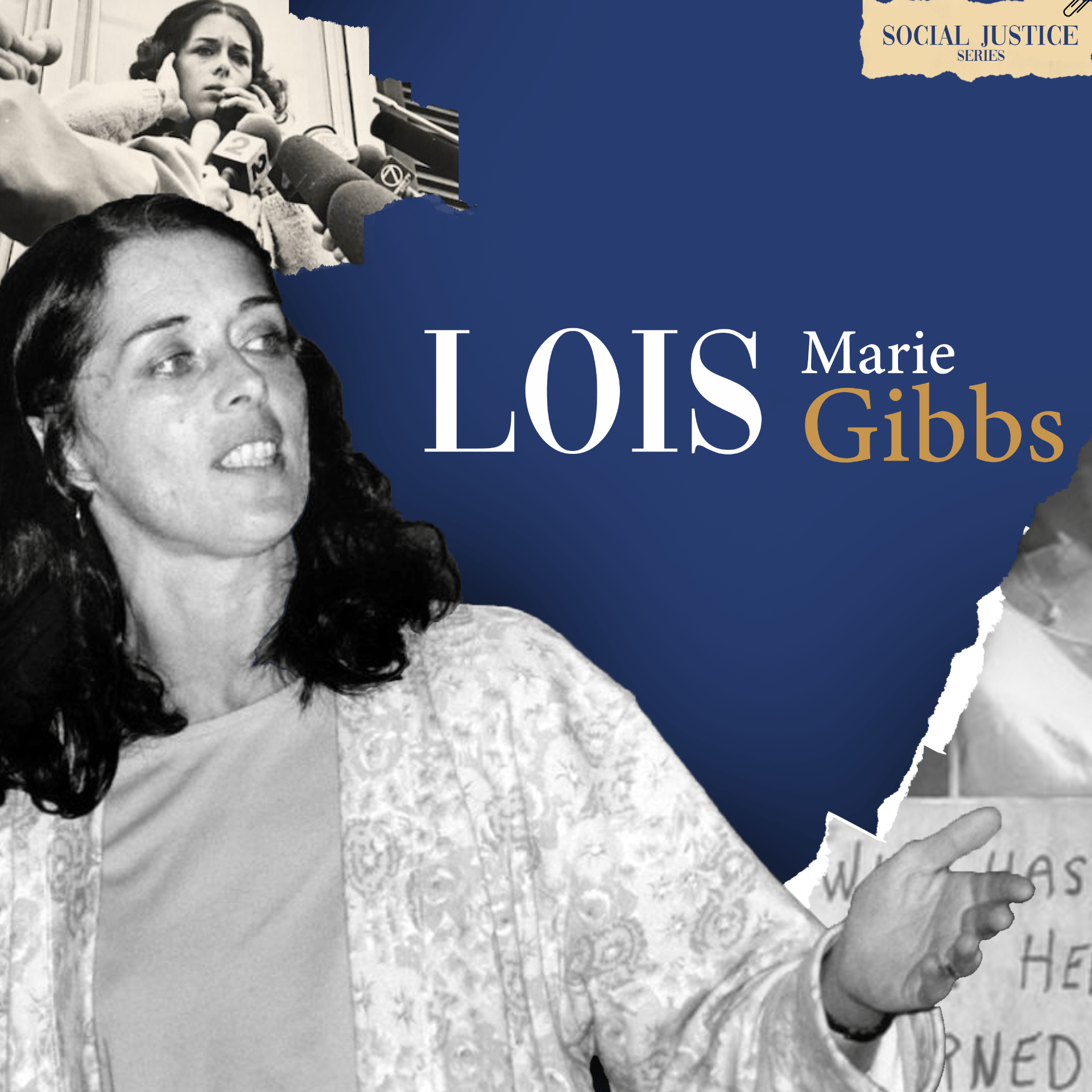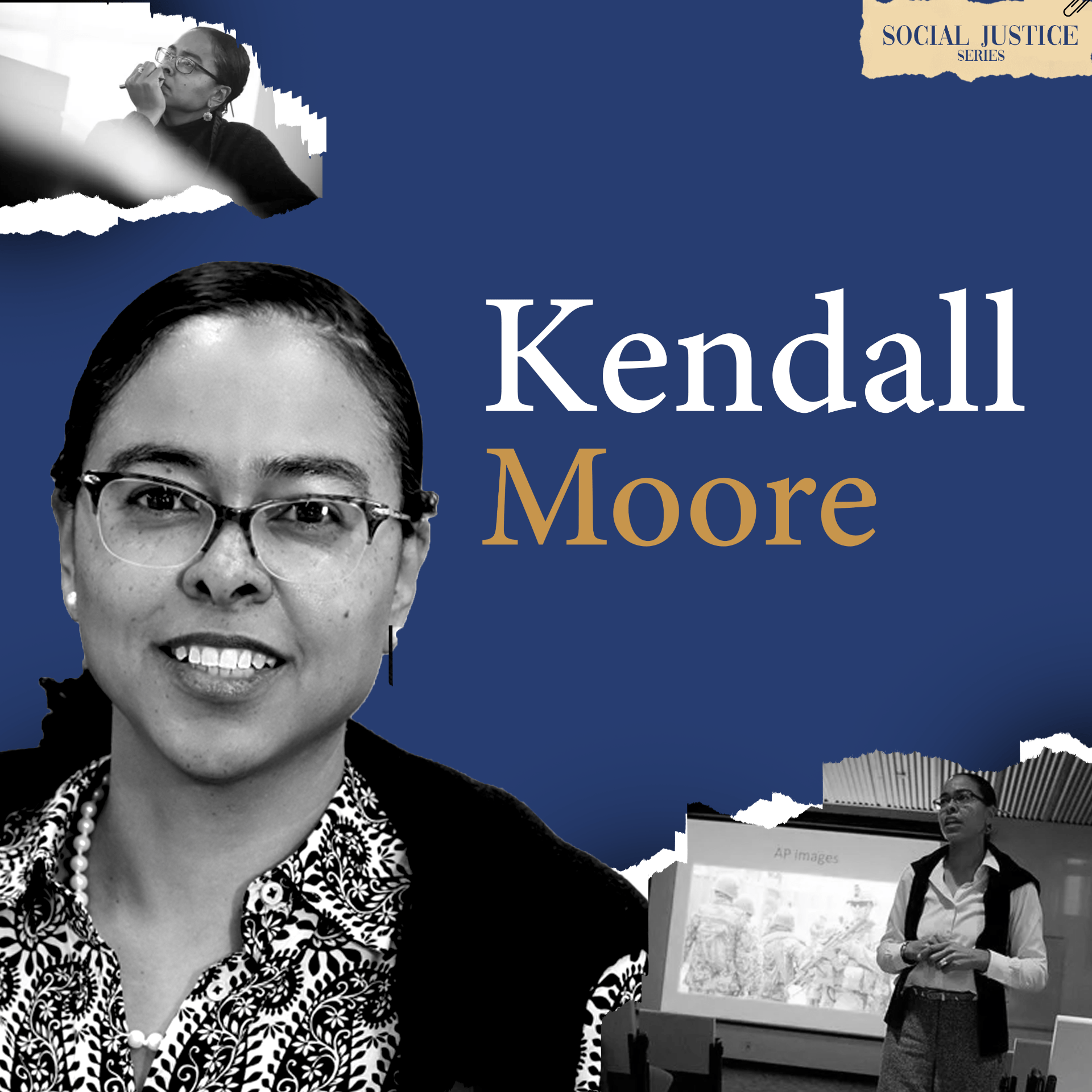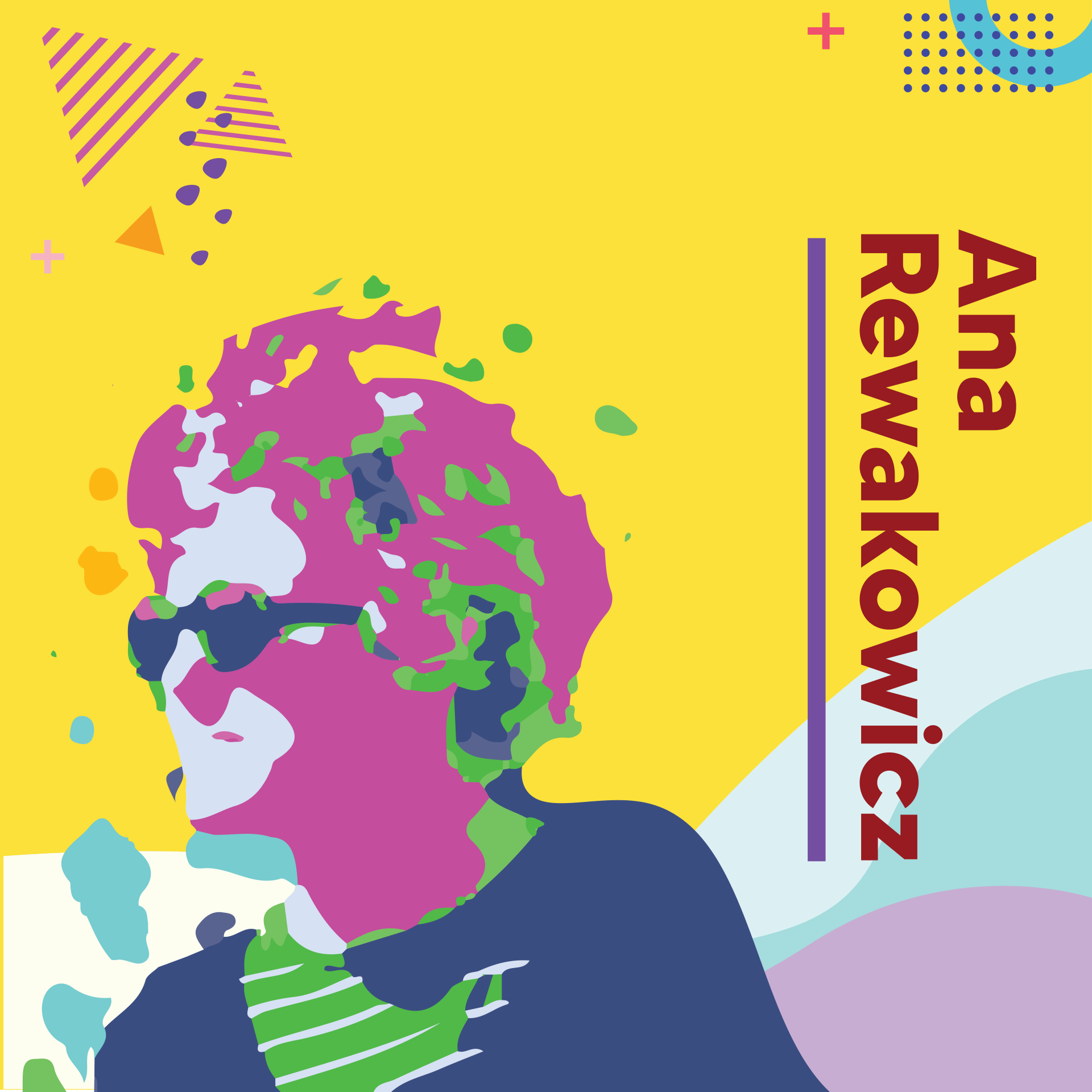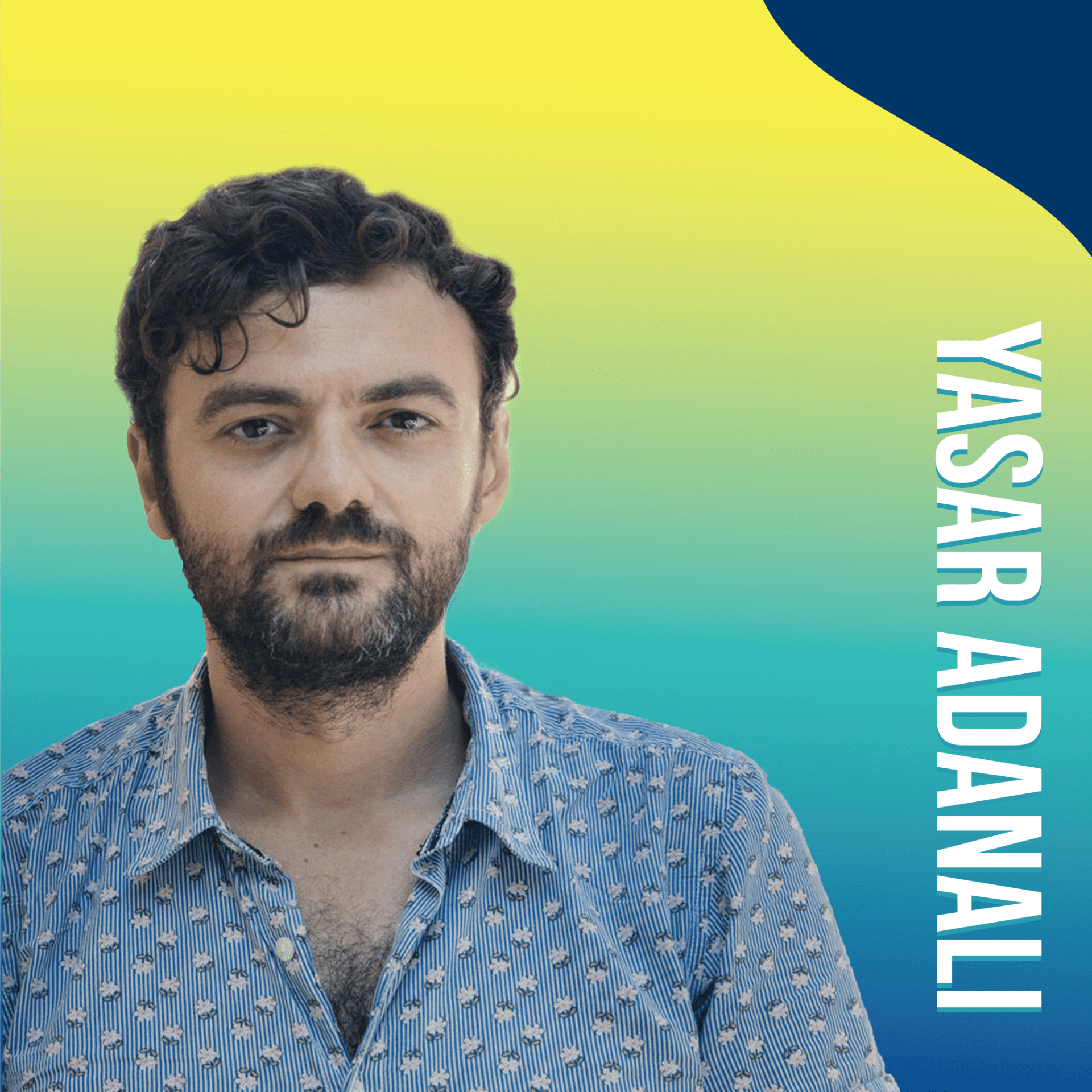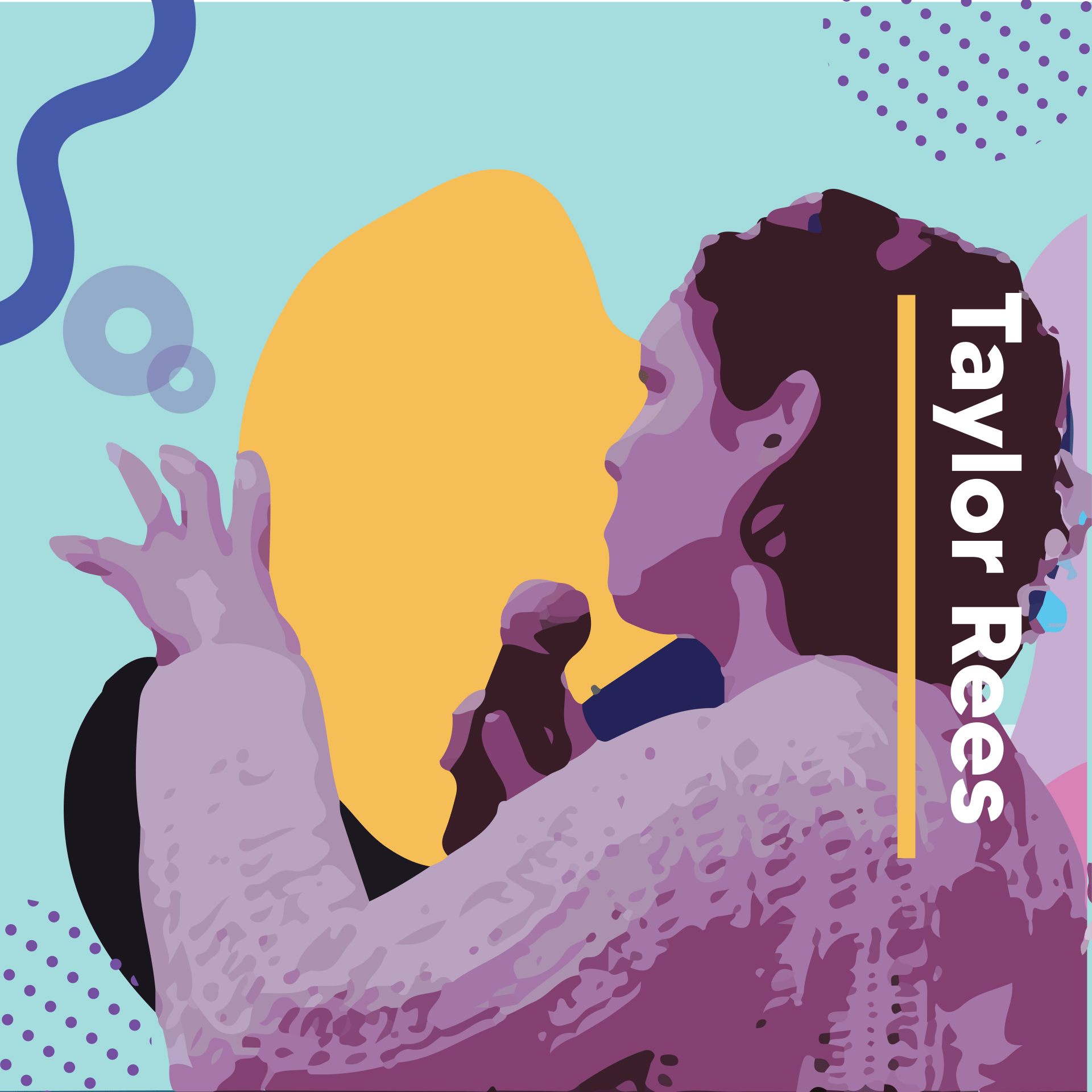
Episode #04
Taylor Rees
on
Communities, Climate, and Collaboration through Multimedia
Join the Global Lab in listening to Taylor Rees on what it means to collaborate with different communities and different people in the field of climate science using photography, film, and storytelling. In this episode, Taylor talks about how collaboration is a messy process, filled with emotions and sacrifice. Taylor shares with us the importance of dialogue and incorporating stories of different people in the constructing narratives of one of the most critical problems of this generation.
Hosted by Steven McCauley, The Global School, WPI and Ingrid K. Shockey, The Global School, WPI
Taylor Rees on Communities, Climate, and Collaboration through Multimedia
Guest Bio
Taylor Freesolo Rees is an artist, filmmaker, and photojournalist. She is driven by an insatiable curiosity to explore and tell the stories beneath the surface. She infuses her passion for adventure into her work around environmental and humanitarian issues, bringing new perspectives and deeper public understanding to challenging topics. Her recent documentary, Ashes to Ashes was a qualified for an Academy Award after 70 festival screenings and 25 awards.
Transcript
Scroll to read more
Intro 00:03
empathize, engage, inquire, participate, collaborate, amplify Welcome to Story world, where we feature creative scholarship and global engagement by students, faculty, guests and friends at the Global lab at WPI. Storyworld. Explore with us.
Steve McCauley 00:28
So welcome, Taylor, it’s really awesome to have you here at WPI. And at the Global lab, we’ve described you as a photographer, digital storyteller. And ecologist, you bring a lot of different activities together in your work. Can you tell us about your pathway into this work?
Taylor Rees 00:46
Sure, yeah. Um, so I was always interested in photography growing up as a kid, in high school, I take photos and mostly a friends got into the darkroom a little bit. And then in college, I went into an undergrad program in biology and ecology and got a chance to spend two summers working in Greenland, doing climate change ecology. And while I was there, you know, I think it was the first time I just really noticed how, you know, science as an institution, and also storytelling, a lot of the journalists that were in Greenland, professionals and experts, in the transmission of knowledge, so to say, are descending upon this country in the summer and interpreting the landscape for the world. There’s very little interaction at the time that I noticed, at least between those hard science researchers and journalists and the local community in terms of really hearing from them, those interpretations of of change as well, so So yeah, I’m loved ecology. Yeah, the summers were amazing, looking at mammals and plant phonology changes, and like really getting into that way of interpreting the world. And also, I bring a video camera there one summer until I made my first film, which was interviewing local Inuit communities about what it was like to have the scientists in their space as interpreters of their home to the world. And that film, played at the public library one time, and I had put some Radiohead music to it, so YouTube took it down. It is nowhere to be found. And unfortunately, I don’t have a coffee, but yeah, and so after. After undergrad I I bounced around a lot I did I was a substitute teacher at the Santa Fe Indian School. In Santa Fe, I got into citizen science projects worked for a nonprofit called tree phi in Jackson, where we tried to develop protocols and work with universities to come up with what kinds of surveys citizens could do to contribute data. In a in an even a policy setting, I think the whole idea was just like being really passionate about involving real people and their own understanding of their environment, empowering people to feel as though like they hold an equal seat at the table of being observers and interpreters of change. And my partner in that project, David Gonzalez, and I also developed art projects for students and we take kids out into the woods were these tree, it was a white bark pine that was being decimated by a beetle climate change induced beetle kill. And so had them like take photos, and we turned photos into screen printing projects. And just the whole thing revolved around like, bringing more integration between the sciences and data collection and art and storytelling to the people and making that a really kind of collaborative process. And then after that, I went to graduate school I did a master’s in environmental management at the Yale School of Forestry. Where I studied, specifically my thesis research was in risk narratives. I worked with Professor Karen a bear at the Yale School of Forestry and in a project that kind of revolved around doing ethnography research and Alaska in terms of how narratives around places kind of being in states of environmental peril, influence those communities and the community dynamics and what kinds of people kind of come together and alliances when something is at risk and what kind of people end up being pushed to the side or not included in those conversations. And while I was at Yale, I also directed the Yale Environmental film festival for a couple of years and so just became more and more passionate about filmmaking specifically. And then, and how, how environmental and humanitarian films in general are created and through what lenses and to what effect and what impact and where they go. And if they create change, or if they are simply like a form of art and expression. And after grad school, I moved to Utah, and with my current partner and husband, Rene and Aztec, and we have been making films together, ever since which I think is it’s been six years of now just being full time filmmaker, photographer. Yeah, right. Cool. There’s a story.
Steve McCauley 05:46
Yeah, loads of long winded ation of science and community and art in there. And it just seems to come from your instincts and commitments, right, it just naturally comes together so.
Interviewer 05:55
One of the biggest themes that comes up in your talks with students and in our conversations is this idea of collaboration. And obviously, that’s the force behind all of your creative energy. But what I hear you saying so much is that it’s messy and imperfect. And I wonder if you could elaborate on that a little bit?
Taylor Rees 07:02
Yeah, it is. Very messy. Collaboration, as a concept is such a hot topic right now, I think every you know, in the sciences, and in storytelling spaces, and advocacy spaces, I think we’re all trying to figure out what inclusivity and collaboration really look like. And in my experience, in that, and being very passionate about those ideas, as well, I realized that it looks, it looks like a lot of things. And it’s, it’s a very evolving process. And so you know, for me, the idea of, of being a storyteller and creating a narrative collaboratively with the subjects of my documentary or, or with other people, it’s like, you know, you have to really put down your preconceived ideas, really clearly understand your biases, and where you’re coming from, and your motivations, and your own perspective, and then be really open to whole other ways of thinking about what a story could be, what a situation is happening, or how a problem is defined, like what a solution space looks like. You know, and every single project that I get into is a form of collaboration in some way, shape, or form, and is very messy, like, I think it’s just inherently a wild ride. And I think if, you know, always just like hold true to the values of like, really, respecting that process, and respecting all of the people and all the places that they’re coming from. And that could even mean like collaborating with my partner, we’re not and like, when we collaborate, it’s this whole thing of like, it can it can go in so many directions and involve so much emotion and can be really difficult. But if you fundamentally just respect like, No, I, you know, I can’t move through life or through this art form, or through this work without really wanting to commit to that collaborative process. So that’s kind of require deep listening and sacrifice and putting down my own ideas and vision sometimes and, and standing by it and other times. All those things. I think I’m a really bad podcaster because I talk long sentence.
Steve McCauley 09:27
Great podcast. That’s good. For us. We’re just like, I like that.
Taylor Rees 09:30
Okay. Let me know if you want to attack me to talk.
Steve McCauley 09:33
Yeah, no, that’s good. Yeah. I really loved what you said about even in your early work in Greenland, kind of preceding the role of scientists in community and how that how that worked out. I’m really curious how you saw either in that example or other work you’ve done, how different parties learn from one another did scientists do scientists learn from For communities that have very different kinds of worldviews, does it actually affect their science? And conversely, do resource managers on the ground learn from scientists in ways that really broaden each other’s minds? Do you know what I mean? So we’re not just privileging a particular worldview or the scientific worldview, the science actually get changed by engagement with people on the ground. Yeah.
Taylor Rees 10:21
I mean, there, I guess we know, there are so many power structures to how the interpretation of our earth is happening. I mean, I think if you look in any sort of context, what, what roles and what powers various agencies have policy scientists, what role researchers have in academic scientists, what roles communities have, and local experts, in terms of like, all the different ways one could kind of understand a problem. So for example, let’s say in Alaska, you know, there’s a deep integration between forestry, health and fisheries, health, and just the whole ecosystem, and each group, and each kind of stakeholder in that situation has a different way of understanding what’s going on. And so, you know, do scientists learn from people? Yeah, of course, and I think people are learning from scientists are on this, like, Great dialog, trying to figure it out. But fundamentally, there are, there are, you know, structures to how that works in different societies. And there’s a lot of power dynamics at play. And so, one thing that I am excited to see more of is science research, and even policy science practice, or it may be which is more kind of environmental management practice, do a better job at incorporating the perspectives and observations of of the people. And this happens, I think, particularly in like rural communities, indigenous communities, people that live really close to the land to depend on its resources for life and livelihood, and are so often kind of left out of the dialogue about what’s going to happen to that land. And so, you know, to answer your question, like is, is science getting better at learning from people? I think, yeah, when it’s when it’s practiced in a way where it’s not just like, hey, has you know, blinders on and is just, you know, people kind of going into a collect data, that they probably preemptively have an idea about what kind of data they want to collect, and why to say a certain thing about a place or a forest or water ecosystem. I mean, we know we know, too, that a lot of science is funded by, you know, science as like a truth as a, as a, as a power or knowledge. Is, is a is a practice that exists within an industry and an institution and backed by funding of some kind. And so even that, right, you’re like, it’s it’s just good that we’re all paying attention to like, how knowledge is derived, and what the what the motivations behind that knowledge are? I don’t know if I quite answered your question. I feel like I’m a little bit all over. Yeah. So as an institution here, WPI really focuses on STEM students, and then asking STEM students to be in the field, with projects that engage with communities. And in the class last night, you prompt the students to think about what are you going to give or bring, or receive and get from the experience? And have them reflect on that? Could you just break that down a little bit about what kind of thinking that might inspire for a student team coming in with a very, probably a very scientific mindset as a starting place. And very, as you were just suggesting very particular preset goals about what they think the project is about, and what they could offer a community. Yeah, I mean, it’s, first of all, it’s amazing what you guys are doing here, really, and all that students and university setting who are learning, the hard sciences, whether engineering or research are now this kind of stuff, like have an ability to contextualize their knowledge out in the world. And to learn through that process, like how real you know, like an infrastructure is developed and problems are worked through and how where you can do that collaboratively and, and have to do that collaboratively across disciplines and in spaces that are close to home and far from home. So it’s, it’s really an awesome opportunity for the students here at WPI that I see, to get to do this work and to travel. I was you know, in in my experiences traveling remotely for science research or ethnographic research or even film, it’s been important for me to understand what I think I’m there to do or give or provide, and be aware that I’m like motivated in some way, as well as, like what I think I’m, I’m going to receive, and then stay really open to the fact that like, throughout that process that that should change. And like, I should be actively learning the whole time that like, Oh, I’m not here to, to, you know, provide my filmmaking skills to, like, help save this place, like I’m actually here to, to give an ear right, I’m here to like, I’m here to really, really deeply listen, and if and when together, I can work with the community, and we can create a narrative that helps push forward a vision that’s not being represented, like, amazing, but I, I’ve, you know, so often, I’ve realized that like taking out the that I have to create an impact from what I have to give has been really helpful to me. And then in terms of like, what am I there to receive, when you really open up and examine, like, when we, when we travel, when we work when we work in other communities. Just being aware of like how much of a gift that is, and how much of a learning experience that is, and how generous people can be with their stories and their time, and their willingness to work cross culturally and collaboratively. And, you know, that sometimes that learning can be really uncomfortable. And all of that is a gift. And so, you know, being able to receive those experiences, and really take them in. And that’s the other side of that coin. And so yeah, that that dance of like, what am I giving? And what am I receiving? And how can I move through that process thoughtfully? And have fun with it? Make friends? Yeah, yeah.
Steve McCauley 17:01
Great. You mentioned about storytelling and your film aspect of your work. What is the role of storytelling in this, you know, sometimes really intense context of resource conflict and livelihoods? And, and, and science there? And what is the role of storytelling in this sort of context?
Taylor Rees 17:26
Yeah, we’re all I mean, from my, from what I can see, like, the world is very, seems to be going through a lot of turmoil, some would say that the world has always been going through turmoil, and like, this is just the nature of humans and each other and earth and, but we’re also being bombarded with information about that, you know, like, well, this problem is happening in this part of the world. And like, these people are in crisis for these reasons. And, you know, we all need to be aware of our own crises. And like, all of that, if it’s not coming from your direct experience, is information that’s probably being transmitted through story of some kind, whether that’s media, or news, or education, or textbooks, or, you know, word of mouth, we’re receiving this information and like, that comprises our idea of who we are, and what’s going on in the world, which ultimately comprises our ideas of how we respond to it. And so the role of storytelling in, you know, our ability to comprehend the various situations that we’re in politically and environmentally is, is super important. And I, you know, I’m really excited to see so much innovation happening right now, and how those stories are told. So that we can kind of shift our perspective on what it means to be in crisis to shift our perspective on how we understand what climate change is, and why it’s happening, to shift our perspective on like, what solutions to those problems look like, and our communities and other communities and how those are going to happen at the same time, and what the connections between us and other communities across the world will look like. And so all of that all of that interpretation of that information and all of the, the, you know, creation of those new worlds, this is done through story, essentially. So
Steve McCauley 19:39
I’m really moved sometimes by how the essentially democratization of media through Acts access to things like phones, you know, in my more optimistic days thinking of it as like a kind of democratization of media allows so many voices to come through so that we don’t have to rely on generalized As narratives, and we can hear that kind of nitty gritty, from different perspectives, and, you know, presumably that helps us at least have more sophisticated lenses on what’s going on, if nothing else.
Taylor Rees 20:12
Yeah, I completely agree, I think it’s, we are moving into this era where the idea of citizen science or citizen media, or, you know, authentic storytellers, who are representing their homes and their people and their land, we have access to that, where it’s not being interpreted through mass media. I think at the same, I mean, it’s a whole landscape, right of information. It’s in the, on the other hand, we need traditional journalism and institutions that have really rigorous ethics about how things are told and described as well as to hear directly from the voices of people in the midst of their own situations that are of importance to us. In and yet, you know, it’s like, we’re, it’s interesting that we’re doing it through these platforms that are, like Instagram, like Facebook, that are in and of themselves, like large, profit driven, complicated tools. So I think it’s important that we’re thinking critically about that. And but regardless, yeah, I think it would I at least notice, in terms of the good of it all is that ability to hear from people directly art as well, just like, all this amazing art we can tap into from people around the world, art that we can create ourselves and an Express, there’s a really wonderful book called Art and physics, I think it’s by Leonard Shlain. And it it tracks how, you know, these these big leaps in, in, in science and physics, in terms of our understanding of the universe from like, the world is flat to the world is round to the sun is at the center of the universe, to where on the outskirts of a great galaxy. And even just how like space works, like we’re paralleling artists at the time, throughout history that were like, whose brains were changing and learning to observe space and the world and ways to and that like the, I think the premise of the book, it’s been a while since I’ve read it, it’s basically that the to work hand in hand and that like art in ideation and visualization, and totally thinking out of the box of scientific constructs, and using imagination, and curiosity and wonder, have like been the important precedents for breakthroughs in science. So all of that to say and come back to Yes, like the democratization of platforms where we can, like, share and see the world through other people’s eyes is really important and really cool.
Steve McCauley 22:58
And could potentially really, really expand what scientific inquiry looks like now, because stories as a kind of art as a kind of creativity coming from so many different places. Could be influencing the science too, right?
Taylor Rees 23:12
Yeah. Yeah, I think so.
Steve McCauley 24:03
So I’m glad you kind of appreciated this, I think some of the unique education we’re doing here at WPI with this larger stem student body who are getting to experience things in communities around the world really engaging and working closely with folks on the ground. So I wonder if you could help us just think through like where we’re heading with global and global education, higher education, higher education for engineers. We’re just launching a new school here at WPI, the global school to really help us engage more deeply and grand challenges of the day. Do you have any perspectives on kind of the things you’ve seen in your work and your travels and your work on education and working with young people and working with the science institutions, about some of the directions We we might be looking to go or some of the things we might look to prioritize as we train sort of, you know, the next generations of STEM students.
Taylor Rees 25:11
Yeah, so much. There’s so much to think about there so much potential. I think first and foremost, you know, our modern systems of education right now are not serving students in a lot of ways. I think, you know, we’ve, we’ve seen how public education works for some, and those structures really don’t work for all and, you know, the United States, I think it has, continues to decline in its in its education potential, especially in the sciences. And I think it also has been failing, you know, a lot of generations who no longer feel as though they’re really equipped to be in the world. And, and yet, we’re very equipped to know how to, like, feel pressured to get a grade in the hopes that we’ll get a job. And, you know, I’ll just kind of check out under the lobby, okay, and, and then you’ll be that person sitting at your job listening to the news being like, yeah, I don’t know how to understand that problem that seems far away. But it’s like, also, relevant to me in an ever increasing globalized world, like everyone’s problems are going to be our problems. And our problems are everyone’s problems. And everything we do, is affecting this whole. And that’s a, it’s obviously a hard thing to wrap your mind around. But it’s the truth and you wrap your mind around it. In context, you have your mind around it through experience. And, and I think that the potential for education, especially in the sciences, is to just really inspire students who want to innovate in that space to who want to, you know, who we’re going to be practicing how to take specific scientific disciplines, and know how to work with other kinds of scientific disciplines or with people in humanities, or in or in policy or in art certain, you know, all these different silos that we’re in. And so to create educational opportunity that helps students see real world problems. Go through the process of of forming friendships and engaging in in respectful and reciprocal ways practice the messy art of collaboration, get excited about, like, you know, just how all of these things that you learn in textbooks and classes really apply. And just feel a part of something is so important. And yeah, I really, really admire what you guys do, and especially supporting women in the sciences in these ways. And I think that yeah, super cool.
Steve McCauley 27:57
Well, thanks a lot for talking with us Taylor and for the really amazing work that you do and for you know, bringing a lot of really important things together and sharing that with us. Thanks. Thanks a lot.
Taylor Rees 28:08
Thanks so much.
Intro 28:22
Thank you for listening to Storyworld Be sure to follow us on Instagram and Facebook at WPI global lab and our website global lab.wpi.edu. Stay tuned for more from the global lab.


